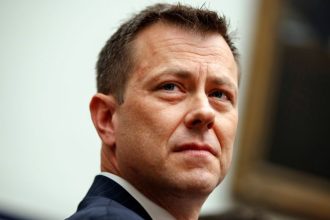Receive free Russian politics updates
We’ll send you a myFT Daily Digest email rounding up the latest Russian politics news every morning.
China’s foreign minister Qin Gang met Russian deputy foreign minister Andrei Rudenko on Sunday as Beijing tries to gauge the impact of warlord Yevgeny Prigozhin’s insurrection on the political stability of one of its closest strategic allies.
Chinese state media said the pair, who were pictured smiling and walking together after their meeting in Beijing, “exchanged views . . . on Sino-Russian relations and international and regional issues of common concern”.
The reports did not mention the rebellion and China has made no official statement on the events. China’s state media has downplayed the drama — on Sunday giving precedence to an exchange of letters between President Xi Jinping and a Belgian zookeeper discussing pandas.
But the muted official coverage of the rebellion belies the importance for Xi and the Chinese Communist party leadership of the stand-off in Russia, Beijing’s most important partner in its effort to combat what it sees as US hegemony.
A weakened Russia would not only deprive the Chinese leader of a reliable ally but would also potentially destabilise China’s extensive border with its giant neighbour. “We don’t need another civil war in Russia as well, we need stability in all countries,” said Henry Huiyao Wang, president of the Center for China and Globalization, a think-tank in Beijing.
This desire for stability, Wang said, was why Beijing wanted peace talks between Ukraine and Russia to start as soon as possible. China’s envoy Li Hui visited both countries last month but little progress has been made.
For China’s leadership, the challenge has long been how to express support for Russian president Vladimir Putin without further alienating Europe. Premier Li Qiang visited France and Germany last week to try to strengthen ties that have been weakened by Beijing’s close relationship with Russia.
Over the past two years, Xi has repeatedly expressed strong support for Putin, from their declaration of a “no-limits friendship” only days before Russia invaded Ukraine last year to a state visit by Xi to Moscow this year.
After the debacle of the past few days, Putin will be looking for reaffirmation from foreign leaders, especially China, his most powerful and credible ally. “For Putin, it will be important to have that support from China, a globally important player, to stabilise the domestic climate,” said Zsuzsa Anna Ferenczy, a former political adviser at the European parliament who is now with National Dong Hwa University in Taiwan.
“They [China] are probably thinking and having talks about what is needed to secure Putin’s position because Putin has been very useful for China. That must be the driving consideration.”
At the same time, the chaos unleashed in Russia by the war against Ukraine will not be lost on Beijing, whose long-term ambition is unification with Taiwan using military force if necessary.
“There are so many lessons to learn from what happened last night,” said Ferenczy. The chaos in Russia might make China think about “how fragile control can be even in the most authoritarian regime”, she said.
While it tried to shore up Putin, Beijing would also be seeking more extensive contacts with other power brokers in Russia, analysts said. This would help it secure the relationship should someone else gain power.
“China may hedge its bets, not by withdrawing support from Putin, but by increasing engagement with other actors in and around Russia,” said Leif-Eric Easley, a professor at Ewha University in Seoul.
While China’s state media coverage of Prigozhin’s insurrection was relatively muted, sticking closely to the Russian domestic media version of events, social media was more active.
Multiple posts described the warlord as An Lushan, a reference to a famous rebel general in the eighth century during the Tang dynasty, who rebelled against the empire and set up a shortlived rival kingdom. But the posts were quickly deleted.
Another user on Weibo, China’s version of Twitter, appeared to evade government censorship and attracted a lot of reposts by using euphemisms to describe the insurrection, referring to it as a “PUBG” battleground first-person shooter video game and sarcastically giving Putin the pseudonyms of “tsar” and “grandpa”.
But it was clear that despite the government’s efforts to control the narrative, even Beijing’s most stalwart supporters in the state media could not completely conceal their view of Putin’s dimming prospects after recent events.
The end of the rebellion “obviously narrowed the impact on Putin’s authority” Hu Xijin, the former editor of the nationalist Global Times, said on Twitter, before adding: “Although not to zero.”
With additional reporting by Gloria Li in Hong Kong and Edward White in Hong Kong
Read the full article here




